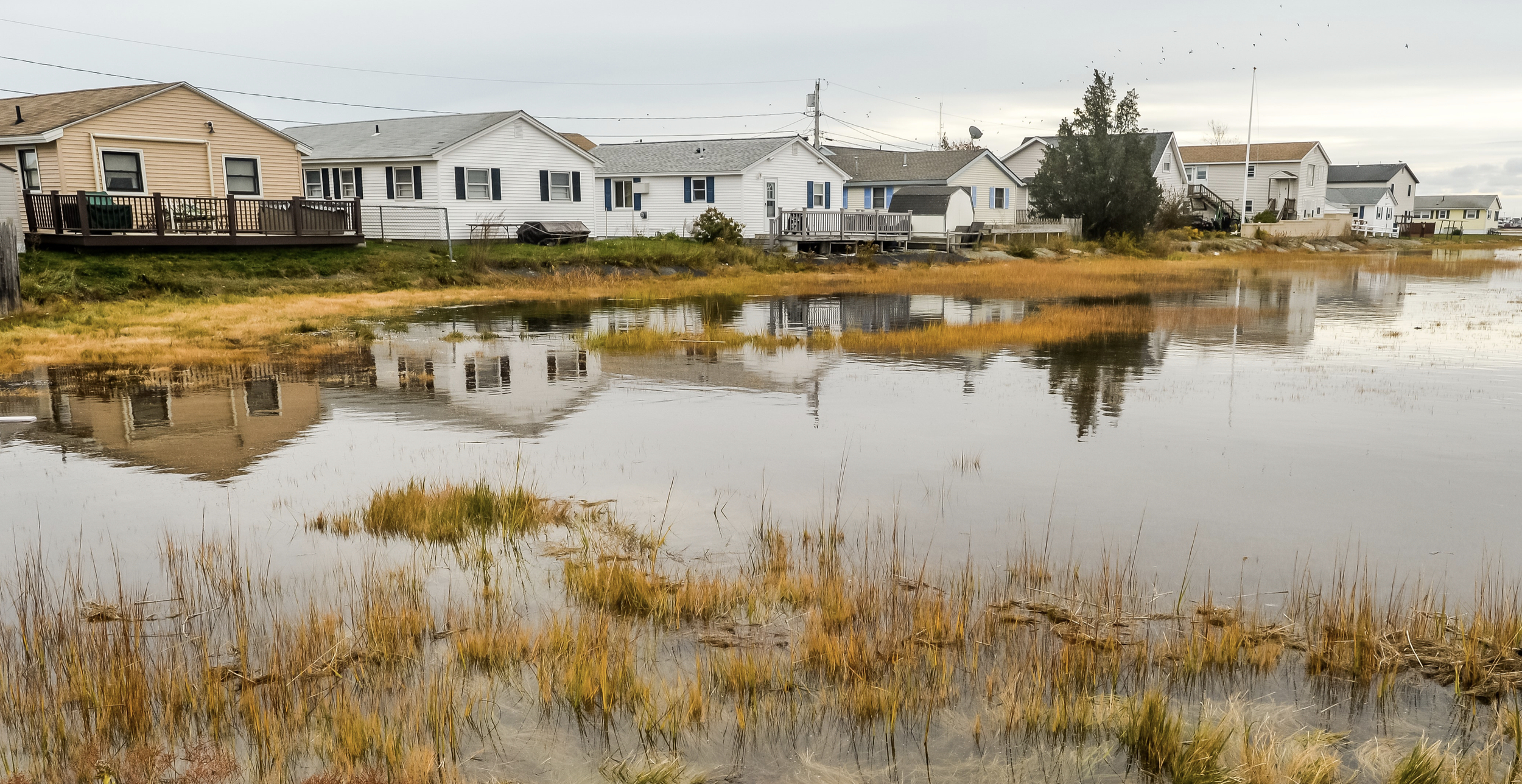
Water Utility Districts as Facilitators of Regional Climate Change Partnerships
Unlike much of the literature on regional activity that centers on how general-purpose local governments choose to respond to externalities or other cross-boundary drivers, Jayce Farmer (University of Nevada-Las Vegas) centers existing water utility districts as the key independent variable.

Envisioning a Role for RIGOs in Cross-Boundary Land Use Regulation
The acknowledged value of regional planning is evident in the proliferation of state and federal policies that require coordination between local authorities. However, as Thomas Skuzinski (Northern Illinois University)and Carolina Velandia Hernandez (Northern Illinois University) note, even while regional planning efforts exist the plans themselves lack teeth and land use regulation remains a predominantly local activity.

Investing in Emerging Regional Institutions to Promote Equitable Climate-Ready Regions
In this contribution, Catherine Ashcraft (University of New Hampshire) and Christina Rosan (Temple University) explore the potential for regional planning solutions to the climate crisis in a case study of two initiatives in New England. They note that climate change, like many wicked problems, is a complex set of issues that faces numerous political barriers, and that solutions are unlikely to be unlocked at one level of government.

Projects Not Systems: Why New York Doesn’t Have a RIGO
The greater New York City region is both a substantial population and financial center in the United States, making it a highly contested political territory. Despite (and perhaps because of) its value in this regard, Cameron Gordon (Australian National University), Richard Flanagan (City University of New York), and Jonathan Peters (City University of New York) argue that intense fragmentation in the region creates hurdles to effective regionalism.

Tightening Networks and Deepening Co-Regionalism
Often, scholars investigate co-regional actions by evaluating them in their final form: an interlocal agreement, the charter of a regional authority, or the decisions of a Regional Intergovernmental Organization board. In this post, Lachezar G. Anguelov (The Evergreen State College) introduces us to an embryonic informal network addressing drug addiction and overdoses with stakeholders crossing jurisdictional, sectoral, and policy boundaries.

American Regionalism and the Constellation of Mechanisms for Cross-Boundary Cooperation
In this colloquium, we explore the variety of actors involved in the cross-boundary cooperation that we associate with American regional governance and the evolving connections and relationships between them. We aim to produce a cutting-edge review of the state of the field of American regionalism that is accessible, thought provoking, and forward looking.

Some Reflections on State of the Cities: India
This essay is meant to sum up and bring the forum on the State of the Cities: India Report (SOCR) to a close. The previous essays have introduced the SOCR and complemented it with observations and perspectives of a distinguished panel of international experts, made initially at a webinar held under the auspices of the Munk School of Global Affairs and Public Policy (University of Toronto) and subsequently scripted for the Urban Affairs Forum.

Urbanism and Citizenship Rights in India
Our understanding of Indian urbanization is as amorphous as the sprawling megacities, mofussil towns and quasi-urban rural settlements that constitute it. Characterised simultaneously as too fast and too slow, as ‘messy’ yet dynamic, ‘hidden’ yet self-evident, urbanization in India is assumed to be transformative yet found to be insufficiently so. What’s actually going on here?

From the State of the Cities to the Future of the Cities
One of the major contributions of the report is that it questions the meaning of “the urban” and demonstrates the complexity in the measures of urbanization. From large cities to urban peripheries to census towns, the different forms of spatiality have different logics of growth and present different answers to the central question: How urban is India?

Are Indian Cities Urban?
The question I pose here, while inspired by Prof. Mathur’s provocation, is, however, slightly different. What I wish to ask is whether Indian cities are truly urban. What do I mean by that? I mean that urbanization is usually associated with social emancipation and political agency and economic progress. It is for these qualities that the process of urban transformation is imbricated with not just growth, but development, the reason why it is so desired and also the reason why it is resisted. How do Indian cities fare on these metrics?

Urban Governance and Municipal Finance in India
The study emphasizes two points of interest in this connection. First, as in most countries, most attention has been paid to big metropolitan urban areas on one hand and poor rural areas on the other hand. However, as this study shows, a large and increasing share of urban development in India has been in smaller cities and in areas classified as rural. Second, there are huge differences between states and also, though this is not as emphasized, within states.

State of the Cities: India Report
Urbanization – irrespective of how it may be defined, interpreted, or perceived, has acquired a “space” for itself in India’s development trajectory. Consisting of 7,933 cities and towns of different population sizes and a population of 377.1 million persons (2011 census) – comparable to that of China for that year – India has the second largest system in the world. At current urban population growth rates, India’s urban population, according to the United Nations, will reach a high of 857 million by the year 2050 AD!

An Introduction to the Forum on the State of the Cities: India Report (SOCR)
The forum starts here with an introduction of the webinar event by Bharat Punjabi, followed by an overview of the SOCR by the lead author of the report, Om Prakash Mathur. The following essays by Jan Nijman, Richard Bird, Partha Mukhopadhyay, Yue Zhang, and Shahana Chattaraj provide reflections on the SOCR and India’s urbanization from an interdisciplinary perspective. The forum concludes with Om Prakash Mathur’s response to some of the questions raised by the panelists. In publishing this forum, we hope to invite more scholarly debates on global urbanization, especially the drastic urban transformation in the Global South.

Business Improvement Districts (BIDs) in Philadelphia and their Potential as Regional Actors
Business improvement districts (BIDs) are special service and assessment districts that typically cover territories as large as the downtown of a central city or as small as the commercial corridor of an outlying neighborhood. These organizations typically collect mandatory fees – assessments – from property owners within their areas to fund projects and provide services such as cleaning streets, providing security, installing streetscape improvements, and marketing the area.

Race, Activism, and Localism in the Metropolis
Generations of research by political scientists and historians paint a consistent – and deeply disturbing – picture of the American metropolis. From different directions, their work depicts a political patchwork designed to facilitate resource hoarding and enforce segregation by race and income. Long entrenched local government powers over land use have made racial and spatial inequality the defining feature of the American metropolis. Special districts, the most numerous boundary-spanning organizations, help the patchwork metropolis function but they are not known for challenging the economic and racial inequalities it protects (Savitch and Adhikari 2017).

American Regionalism and the Constellation of Mechanisms for Cross-Boundary Cooperation
In this colloquium, we explore the variety of actors involved in the cross-boundary cooperation that we associate with American regional governance and the evolving connections and relationships between them. We aim to produce a cutting-edge review of the state of the field of American regionalism that is accessible, thought provoking, and forward looking. In bringing together scholarship on different mechanisms for cross-boundary cooperation, and highlighting common themes, we hope to transcend some of the barriers in our field and begin to develop a comprehensive, grounded, and modern understanding of the dimensions of regional governance.

The Future of Collaborative Leadership in Contemporary Regional Entities
This contribution by George Dougherty (University of Pittsburgh) and Suzanne Leland (University of North Carolina at Charlotte) reminds us that although the landscapes of American regional activity are populated by organizations, those organizations are made up of people. While we often discuss these organizations in the abstract – as entities with agendas, and responsibilities, capacity, and legal agency – these are decided on and executed by individuals.

American Regionalism and the Constellation of Mechanisms for Cross-Boundary Cooperation
The question of how local governments coordinate policies and projects across jurisdictional boundaries fascinates a small subset of scholars across a broad range of disciplines. In the social sciences, research focuses on (among other things) governance, institutions, the consequences of political fragmentation, collective action, and the practicalities of service and infrastructure provision. Much of the literature questions the suitability of the institutions that have emerged in response to multiplying cross-boundary problems and highlights concerns of effectiveness, equity, and accountability.

Democracy, Exclusion, and White Supremacy
This post by Edward Goetz (University of Minnesota) is the last of three posts based on the Exclusionary Zoning Colloquy published in 2019. The entire colloquy is available here. If you missed the first post by David Imbroscio (University of Louisville) you can read that here, and the second post by Katherine Levine Einstein here.

The Privileged Few
This post by Katherine Levine Einstein (Boston University) is the second of three posts based on the Exclusionary Zoning Colloquy published in 2019. The entire colloquy is available here. Check back soon for another response from Edward Goetz (University of Minnesota). If you missed the first post by David Imbroscio (University of Louisville) you can read that here.